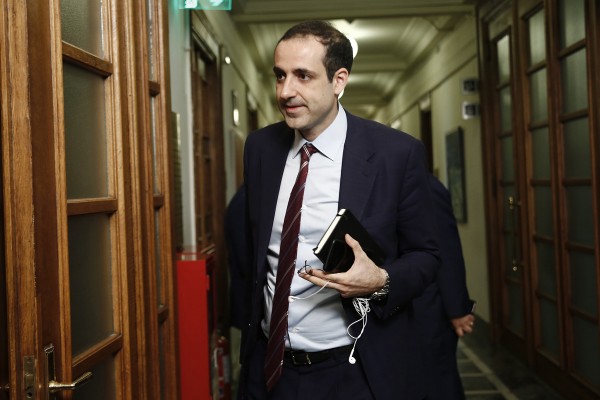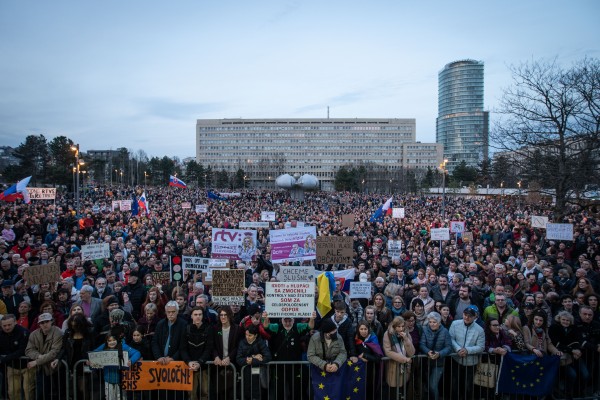H. E Victor Klima
Federal Chancellor of Austria
Presidency of the Council of the European Union
Vienna
Republic of Austria
Vienna, 10 December 1998
Your Excellency,
The International Press Institute, the global network of editors and media executives dedicated to protecting and furthering freedom of the press, is deeply concerned about the Greek authorities’ escalating use of criminal libel legislation in an evident attempt to muzzle critical journalists. We feel it imperative that this issue be brought to light at the EU summit meeting which you host in Vienna on 11/12 December.
Despite the fact that Greece has signed and ratified several international treaties guaranteeing freedom of expression, the country is quickly isolating itself from its fellow European Union member states by punishing journalists with prison sentences.
On 1 April 1998, an Athens court sustained on appeal the prison sentence of four years and two months for “libel” and “publishing a false document” against Makis Psomiadis, journalist and owner of the daily Onoma, and ordered that he be incarcerated. Psomiadis actually served a few months in prison before being released on health grounds.
Giorgos Kondyloudis, journalist and publisher of Eolika Nea, a daily on the island of Mytilini, was convicted on 3 September 1998 to eight months in prison for insulting deputy Franklinos Papadelis. He appealed the verdict and the sentence is currently suspended pending appeal.
On the same day, Yannis Tzoumas, journalist and publisher of Alithia, a daily on the island of Chios, was convicted to four months’ imprisonment for defaming Minster Stavros Soumakis for writing that the minister had stayed at the house of a businessman who was under investigation, and implying that the minister had used his powers to procure scarce airline tickets. During the trial, the facts were confirmed as accurate, but the court considered that the “harsh style” of the article was an act of defamation.
On 17 September 1998, journalist Makis Triantafyllopoulos was convicted and given a suspended sentence of eight months for the defamation of Minister of Justice Evangelos Yannopoulos. In the article, he had argued that the minister was interfering with justice in a case implicating the governor of the Social Security Fund, Gregory Solomos, to seek favourable treatment of the latter.
Avriani publisher George Kouris, editor George Tsiroyannis and journalist Stelios Vorinas were sentenced to four years and 11 months in prison on 21 September 1998. They were convicted for aggravated defamation and insult of a local businessman and publisher.
These examples of a legal media clampdown seem to reflect the current political climate in Greece. In August, for example, the Minister of Justice Evangelos Yannopoulos announced his intention to introduce an additional paragraph to Articles 361on insult and 362 on defamation of the Greek Penal Code, which would allow for at least two years’ imprisonment in cases of insult and defamation through the electronic media. Moreover, he stated he was also considering introducing fines of up to 5,000,000 drs. (US$ 17,000) for such “crimes” and compelling the electronic media to broadcast full identity of all individuals whose messages will be broadcasted.
The European Court of Human Rights has pronounced on several occasions that public figures must accept a greater level of scrutiny and criticism than private individuals; only a vociferous press can adequately stimulate the public debate and perform the role of public watchdog. Furthermore, it is widely accepted in functioning democracies around the globe that press offences should be dealt with in the civil code. Anybody who feels wrongfully harmed can seek redress through the civil courts in the form of a retraction, apology or compensatory payment for demonstrable damages. Issuing prison sentences to impede the free flow of ideas and opinions is quite plainly not compatible with democratic principles.
The International Press Institute urges you to use the summit meeting in Vienna, which coincides with the 50th anniversary celebrations of the Universal Declaration of Human Rights, to call attention to these democratic shortcomings and to insist that Greece immediately comply with its obligations under international law. Imprisoning journalists, or threatening to imprison journalists, who strongly criticise those holding public positions is an affront to the fundamental principles upon which the European Union is built.
I thank you for your attention.
Yours sincerely,
Johann P. Fritz
Director


